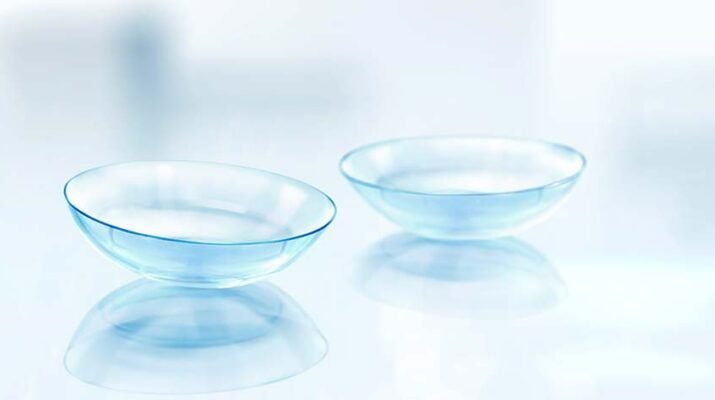By Deborah Jeanne Sergeant
Contact lenses offer sharp peripheral vision and freedom from wearing glasses all day; however, they have certain care and use rules that help those wearing them reduce risk of injury and increase comfort. Avoid these mistakes when wearing contact lenses:
1. Wearing lenses beyond their disposal schedule.
“The biggest challenge is that once a blister pack is peeled, that lens is on the clock, whether or not they wear them daily,” said Franklin S. Senia, optometrist and president of Eye To Eye Optical, Inc. in Amherst. “It’s a one-month lens whether you wear them daily or not. Write on the calendar when you start the new lenses. If you take a one-day lens and wear it multiple days, a lot of times the lens will split in your eye. Lenses are designed a certain way for the replacement schedule. If you don’t follow guidelines, you’re putting yourself at risk for eye infections and the progression of having dryness at a younger age. Usually, dryness starts at 40 and older. You could be in your 20s and have dryness.”
2. Reusing disinfecting solution.
“Do not top off solution; any leftover solution in the case changes the concentration level,” Senia said. “You must dump out all the solution, allow the case to air dry and refill it the next time you put the contacts in the case. You should fill up the solution up to the line. If there’s any residue left over, the concentration level will be altered. Do not reuse it.”
3. Using bargain disinfecting solution brands.
“People often buy generic solution to save money, but they’re the older formulas that the manufacturers no longer sell in the true sense because the newer ones replace them,” Senia said. “I don’t recommend the generics. Some newer ones may be less irritating to the eyes. I recommend the current solutions like Clear Care. It’s the best kill ratio compared with the other systems.”
4. Using saliva to clean a lens.
“Do not do this,” Senia said. “The mouth is full of bacteria and you’re putting that into your eye, which can cause infections.”
5. Using the wrong eye product or method for cleaning contacts.
“People use saline and think it’s enough to clean lenses,” Senia said. “Saline matches your tears but does nothing for killing microorganisms. Sometimes, they squirt solutions in their eye to rinse the lens and that’s a no-no. Some people will squirt disinfectant in their eyes to rewet them, but they should use lubricating drops like Sustain. Or they try to clean with Visine. That is not a disinfectant. Don’t do that.”
6. Wearing lenses the entire day.
“People try to save money by buying only contacts and no glasses and then wear their contacts all day long,” Senia said. “That does not give their eyes a break. Their eyes will develop dryness.”
7. Neglecting to prepare for a vision emergency.
“Bring an extra pair of lenses in your bag,” said Therese Farugia, optometrist with UR Medicine’s Flaum Eye Institute, “and bring your glasses wherever you go if you’re leaving home.”
8. Sleeping with lenses in.
“I try to discourage this,” said Mark Deeley, a primary care optometrist for Rochester Regional Health. “Naps are okay—people have to live—but I don’t like patients to make it a habit. The lid closure at night makes the eye suffocated for oxygen. It can cause visual changes. Although there are FDA-approved options to wear lenses on an extended basis, it doesn’t mean they’re not at risk for inflammation that can be damaging.”
9. Swimming while wearing contacts.
“Especially if patients are wearing lens that they do not replace every day, this can cause problems,” Deeley said. “The microbes and bacteria in a pool, hot tub, lake and fresh water can cause an infectious ulcer. If you have your head submerged, the bacteria and microbes stick to the lens. Sometimes, multipurpose solutions can irradicate those from the lens. It would be better with a daily disposable. Or you could wear goggles.”
10. Skipping check-ups.
“Just because patients are seeing well and are comfortable in their lenses doesn’t mean the lenses are fitting appropriately, Deeley said. “People should go in for their contact lens exams to make sure their eyes are truly healthy.”

